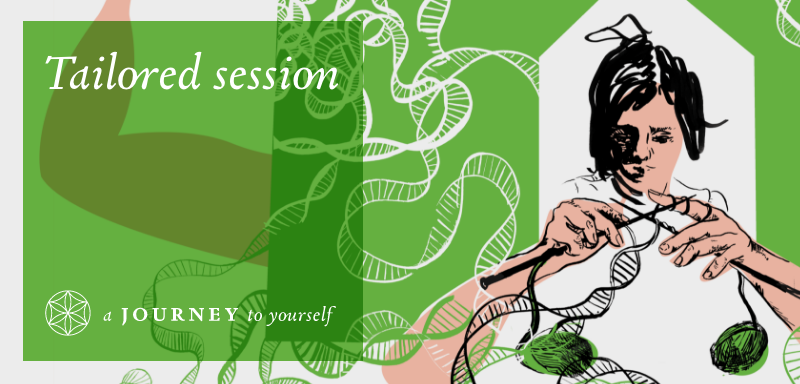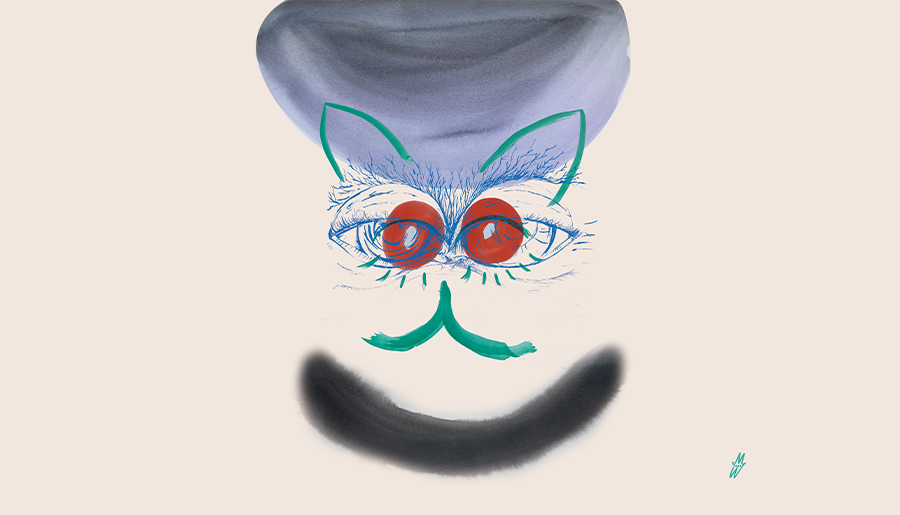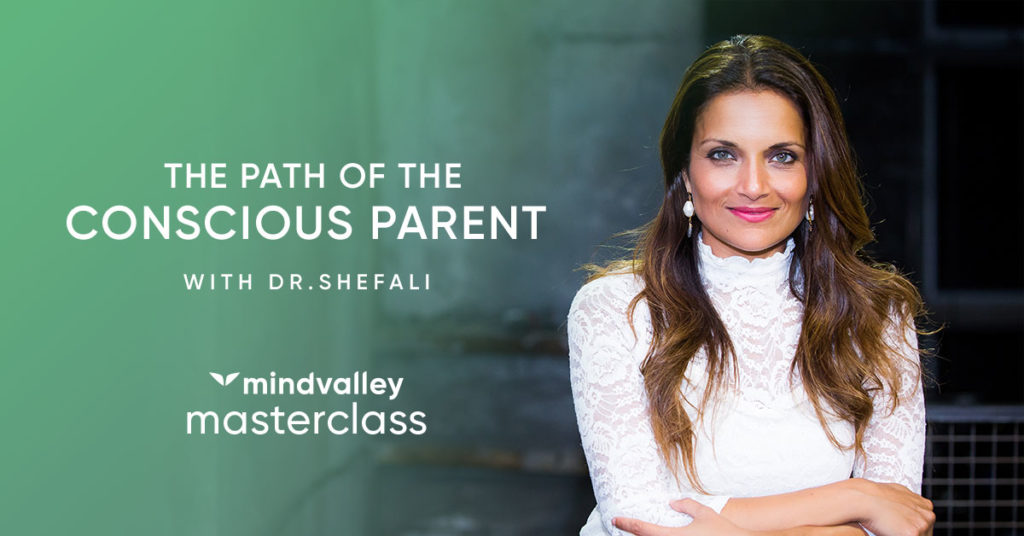“What is a child? An experiment. A new attempt to create man … “
George Bernard Shaw
How is it that you stop trusting your Higher Self and transfer all your trust from within yourself to the outside?
This process begins primarily in your childhood when you are forced to surrender to external expectations, rather than listening to your internal impulses.
In this article you will learn:
- What the inner child is.
- How to work with your inner child.
As a child, you are naturally spontaneous, curious, optimistic, naive, and emotional. You are filled with pure love and live only in the present. Everything is interesting and exciting for you. You like to experiment and explore the world. You are unlimited and you are the manifestation of pure divinity, that is, your Higher Self.
But when your natural and spontaneous impulses begin to conflict with your parents’ commands, you quickly learn that your behavior is wrong. This is because it is widely recognized that a child’s tendency to venture into forbidden areas is a manifestation of the child’s inborn corruption. They expects it to be more mature than it really is and to behave as expected of it. As required by specific cultural or social patterns. If you were stuck in this bad behavior, you were also classified as bad yourself. So, you were disciplined, punished, and perhaps even beaten for being faithful to your nature and innocence. In this way, your curiosity was suppressed, and your spontaneity was inhibited.
With time, the list of prescribed and forbidden behaviors became longer and longer. It wasn’t right to think what you thought, want what you wanted, feel what you wanted. It wasn’t okay to be who you are.
Obviously, some degree of parental control is needed in education. The problem, however, is that often you do not listen to what is objectively best for the child and their needs, but what is most convenient for their parents and guardians. The conflict between the child and the parents is often just a power struggle that is lost on both sides. Whether the child surrenders or rebels, it is broken and loses its natural contact with its own spirituality.
Every child is by nature vulnerable as well as dependent and needy, so he adapts to the pressures and pressures of family life. Dependent primarily on their parents and guardians because they cannot meet their own needs with their own resources. They needs their care, help, and, above all, love and acceptance, which is why they develops survival strategies.
They shuts down, they starts to feel a fear of discovering and taking risks. Their life is becoming more and more like a problem to be solved for them rather than an adventure. And their natural childlike trust can be suppressed by insult or shame. It will be replaced by vigilance and fear, as well as the belief that thanks to manipulation and cunning it will be able to satisfy its needs. Affection and the ability to laugh and cry are suppressed. And repressed laughter and joy cause dullness and depression, often resulting in harshness in adulthood.
Children are very spiritual by nature.
Every child has an unlimited sense of wholeness. A feeling of being, inner connection, and consistency with oneself. And also, unity with the world, meaning true perfection. Yet this natural sense of worth and dignity is very fragile. It’s very easy to destroy a child’s happiness and enthusiasm. If the child does not get confirmation of these characteristics through the attitude of their parents, they will lose them very quickly.
Irritation of your parents, instead of patience and forbearance, effectively hurt your soul. You have learned to hide emotions by not reacting to them. This means that they are overlooked. You have learned this by not having healthy models for naming and expressing them, and by embarrassing and/or punishing you for expressing your emotions. The sooner your emotions were inhibited, the deeper they hurt you. When early emotional suffering has been suppressed and trapped, you react to it in adulthood on your surroundings, on yourself, or project it onto others because it has never found an outlet.
The more you were insulted, the stronger your belief became that you were evil, and the more zealously you idealized your parents.
This way you guarantee your own survival. However, in this way you believe that you are responsible for treating yourself like this because you are angry, broken, disobedient, and lazy. You believe that there is something wrong with you. Meanwhile, suffering is the result of what happened to you, not your fault. You had no influence on the physical, sexual or emotional abuse you experienced. Oftentimes, you just played your part in a dysfunctional family setting: star, primate, caretaker, or baby. However, when you played them, you never felt like you really meant anything. In this way, you have made yourself believe that who you are does not matter.
Learning to judge took its toll in school, where you were immediately judged and labeled yourself. Assessment systems, competitions on who will turn out to be the best, and shaming in front of the whole class are the norm in every school. It is also often degraded by peers through mockery and other cruel behavior. These behaviors have taught you that you can never live up to expectations. It is here that you learned that background and material status do matter. It was here that you often experienced humiliation and shame, as well as a sense of your own disability. Thanks to the school, you are bending under the cultural pressure of excellence. It is here that they taught you conformity and trusting external authorities instead of being exceptional, listening to your intuition, developing your creative abilities, and trusting yourself.
Your earliest feelings, beliefs, and memories were formed in response to the pressures exerted on you during your childhood.
You have become an adapted child. And every experience you experience has touched your body and is imprinted on your mind. You programmed yourself for sadness, being a victim, and your body reflects that experience. These beliefs later turned into a filter through which all your new experiences now pass.
A hurt child poisons the life of a future adult. It causes codependency, criminal behavior, narcissism, distrust, reaction to oneself or others, magical thinking, relationship problems, inability to make close contacts, and undisciplined. As well as a tendency to addictions and compulsive behaviors, distorted thinking, feelings of emptiness, apathy, depression, toxic shame, over-control compulsion, addictions, isolation, or imbalance. It manifests itself with uncontrolled bouts of a bad mood, excessive politeness, and submission, pouting, manipulating others, passive aggression, or withdrawal. Adult children feel a great need to judge everything. Because their parents were adult children with no foresight. Sometimes they raised them like adults, other times like hurt, selfish children.
The fact that your parents didn’t let you be yourself was the worst harm that could happen to you.
It was from them that you received knowledge about yourself and learned how to take care of your own needs. You feel for yourself what your mother felt for you. You learned that it’s not okay to be yourself. So how are you to trust your intuition, body, and yourself now, since you often don’t even know who you are, what you like, what you feel?
However, blaming your parents will not solve your problems. For they themselves were also hurt children. This chain of dependency has been going on for generations. However, it is you who can break it eventually. Then you can heal your life and the lives of your children. To be a good parent, first, you need to heal your abused child. If it still feels hurt, it will interfere with your children’s upbringing and affect their development. You will treat them as your parents treated you or the opposite. In both cases, you will try to be the perfect parent, just as your inner child imagined. There are no perfect parents, and there never will be, but by healing your wounded inner child, you can help your children in the future. By healing yourself, you heal 7 generations forward and 7 generations backward.
There is no point in blaming your parents.
It’s best to forgive them and get your inner child back. Forgiving the other person is an acceptance, and accepting the other person is self-acceptance. Recovering the inner child is about going back in time to the next stages of development and solving problems that are still unresolved. You can do this through meditation with your inner child, letter-writing, affirmation, NLP, and other techniques. You’ll find lots of inspiration in the book “Homecoming” too. You can also use my help in changing your beliefs.
The inner child.

Balance male and female energy?
Do you have somatic diseases that the doctor cannot deal with?
Would you like to change some of your beliefs, and you don’t know how?
I can help you!
It is important that you gain the trust of your inner child, ask for forgiveness, tell him about a higher power, create a new childhood for yourself, and instill new rules in your child.
According to John Bradshaw, such principles are:
- The right to your own feelings. You have the right to feel what you feel. And your feelings are neither good nor bad. They just are, and no one can tell you what to feel. You also have the right to talk about your feelings.
- The right to want what you want.
- And also, the right to see and hear exactly what you see and hear.
- The right, and even a duty, to enjoy and have fun in life.
- Telling the truth, always.
- Knowing your limits and reasonably postponing gratification.
- You will develop a harmonious sense of responsibility.
- The right to make mistakes.
- Respecting and appreciating other people’s feelings, needs, and desires.
- Right to have problems.
Source:
John Bradshaw „Homecoming” (“Powrót do swego wewnętrznego domu.”), Wydawnictwo Medium, Konstancin-Jeziorna 2008
Thanks to our partnership with Mindvalley, you can now learn conscious parenting from the best experts in the world.
Discover a new model of parenting Oprah called “Revolutionary” and “Life-changing” so you can create the ideal environment for your children to thrive and blossom into their most authentic self with conscious parenting expert, Dr. Shefali Tsabary.



